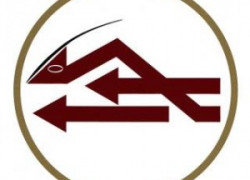UNWTO projects 7% annual growth over 20 years
Despite events of the Arab Spring, and potential uncertainty in the wake of austerity measures in key source European markets, there is a bright future ahead for tourism in the Middle East and North Africa, according to a consensus of delegates at the first United Nations World Tourism Organization (UNWTO) and Arabian Travel Market industry forum.
The summit, which took place at Arabian Travel Market on Monday, is now set to become an annual fixture that brings together both government and private sector officials to seek common goals and mutual benefits from the promotion of travel in to the region.
Speaking at the forum, UNWTO Secretary-General, Taleb Rifai, called the Middle East & North Africa (MENA) region a “tourism success story in the first decade of the 21st century”, with the majority of markets already showing a strong rebound following the challenges of the last 12 months.
Rifai also shared some insight into the regional situation and gave a positive prognosis for the future. “We are very impressed by the rate of recovery of some of the most affected countries in the region. Countries that were directly affected, like Egypt, Tunisia, Syria and Yemen, saw a downturn of 80 to 85 per cent as political events unfolded, but minimised their losses considerably in 2011, closing the year down by 25 to 30 per cent.”
“The potential for growth is still excellent as we are starting from a low nominal base in the region. Even with 79 to 80 million tourist arrivals, the region has less than 8 per cent of the world’s intake of tourists, which currently stands at almost one billion. The MENA region deserves much more,” he added.
While UNWTO statistics recorded the loss of an estimated seven million tourists across the region last year, the organisation is projecting a seven per cent annual growth rate over the next 20 years with visitor totals hitting 195 million by 2030, up from 79 million in 2010.
Setting an optimistic tone, Egypt’s Minister of Tourism, HE Mounir Fakhry Abdel Nour said first quarter visitor figures indicated the country was on the right track to return to the level of 2010 numbers by the end of the year, following a downturn of 33 per cent in 2011.
Tarak Labib, Regional Director of Sales Egypt, Hilton Worldwide, said, “The local market was a saviour for our resorts, and we were already seeing business come back by the end of March/early April,” he said.
Leanne Harwood, Vice President of Commercial for India, Middle East and Africa, InterContinental Hotel Group, took a more cautious stance, and noted that until “Egypt stops being on the front page, it’s difficult to see some stability but we’ve seen losses drop to 30 per cent from 80 per cent, so [the market is] definitely rebounding.”
Jordan Tourist Board director, Dr Abdelrazzak Arabiyat proposed joint marketing and packages. “In order to capitalise on long haul markets, we believe we have to combine packages with neighbours to offer Dubai and Jordan, Egypt and Jordan, Oman and Jordan,” he said.
His view was echoed by the minister of tourism for Oman, Her Excellency Maitha Al Mahrouqi who said, “Oman has its own elements, but we can work with others to package together, as well as increasing visa co-operation.”
Looking ahead, Rifai identified certain destinations as ‘ones to watch’. “There are a number of attractive untouched destinations that need a lot of investment, such as Libya and Algeria. These are sleeping giants” he said.
According to Reed Travel Exhibitions’ Portfolio Director, Mark Walsh, the summit was set to become an essential forum for regional issues facing the travel and tourism sector.
“While every destination has its priorities and strategies, there is a common goal to promote the region and we are delighted at the level of participation in this inaugural event which demonstrates a will to work together at all levels,” he concluded.
Source: Emirates247

.jpg)



